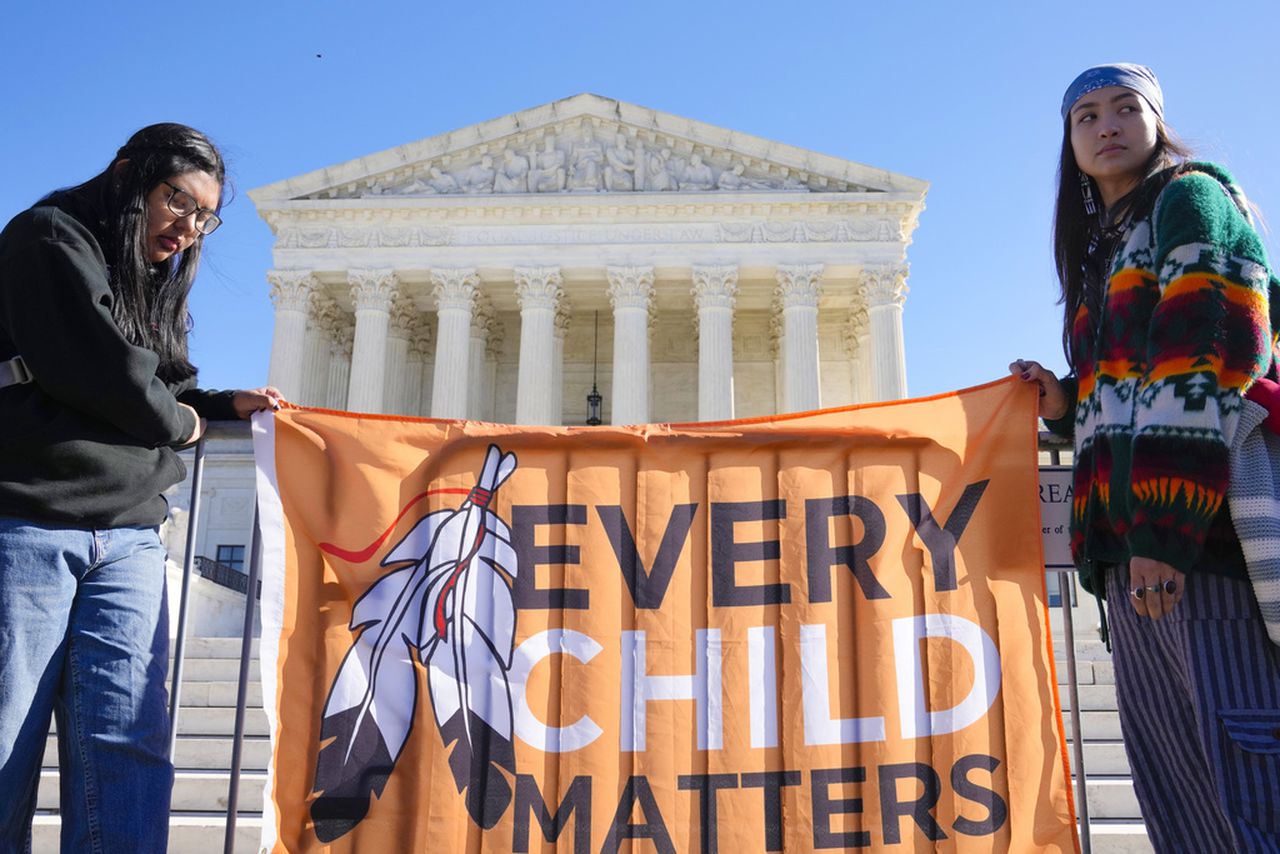Montana acts to protect Native American priority in adopting Native children
BILLINGS, Mont. (AP) — Montana Gov. Greg Gianforte has signed legislation giving Native American families preference in fostering and adopting Native children involved with child protective services, a proactive move to protect such rights as the U.S. Supreme Court considers a case that could undercut them nationally.
Gianforte signed the Montana Indian Child Welfare Act on Monday after it passed the Legislature by a wide margin.
Governors in Wyoming and North Dakota signed similar laws this spring, while a proposal in Utah stalled in the state Legislature.
The measures are modeled after the federal Indian Child Welfare Act, which Congress passed in 1978 in response to the alarming rate at which Native American and Alaskan Native children were taken from their homes by public and private agencies and subjected to physical and emotional abuse.
A pending Supreme Court challenge has put the federal law in jeopardy. During a hearing last year, justices seemed likely to leave in place most of the law that gives preference to Native American families in foster care and adoption proceedings involving Native children. The law also requires child welfare agencies to provide services to help Native families move toward reunification.
The Montana bill was amended by lawmakers to sunset after two years. Its Democratic sponsor, Rep. Jonathan Windy Boy, said he initially introduced the measure a decade ago after some state district court judges were not following the federal law in Native children custody cases.
The new law includes “specific language that strengthens the protections of the child,” Windy Boy said.
Gianforte was scheduled to be in Texas Tuesday for a Republican Governors Association meeting. His spokesperson could not be immediately reached for comment.
Ten other states already had similar laws in place, including New Mexico, whose law took effect this year. They too could be affected depending on how the justices rule. Most federally recognized tribes want the act upheld, fearing that an adverse ruling could dismantle a whole range of federal laws based on their political relationships with the U.S. government.
Opponents include non-Native families who have tried to adopt American Indian children in emotional legal cases.
A handful of white families claim the federal law is based on race and is unconstitutional under the equal protection clause. They claim it puts tribal interests ahead of children. Lower courts have split on the issue.
From 1887-1969, Native children were placed in boarding schools that used abusive practices to assimilate them into white society. Many were adopted by non-Native families, often depriving them of their tribal and cultural heritage.
In Montana, nearly 11% of all children are Indigenous, but they made up 37% of those in foster care in 2021, according to the National Indian Child Welfare Association. About 9% of North Dakota children are Indigenous, a state where they account for 44% of the children in foster care, the association said.
Montana lawmakers added language to the final bill indicating they intend to revisit the issue in future sessions.
“The Legislature does not expect this to be the final word on how we deal with Indian child welfare issues or how we seek to provide for all of Montana’s children within the child protection system,” they wrote.
— By MATTHEW BROWN Associated Press
